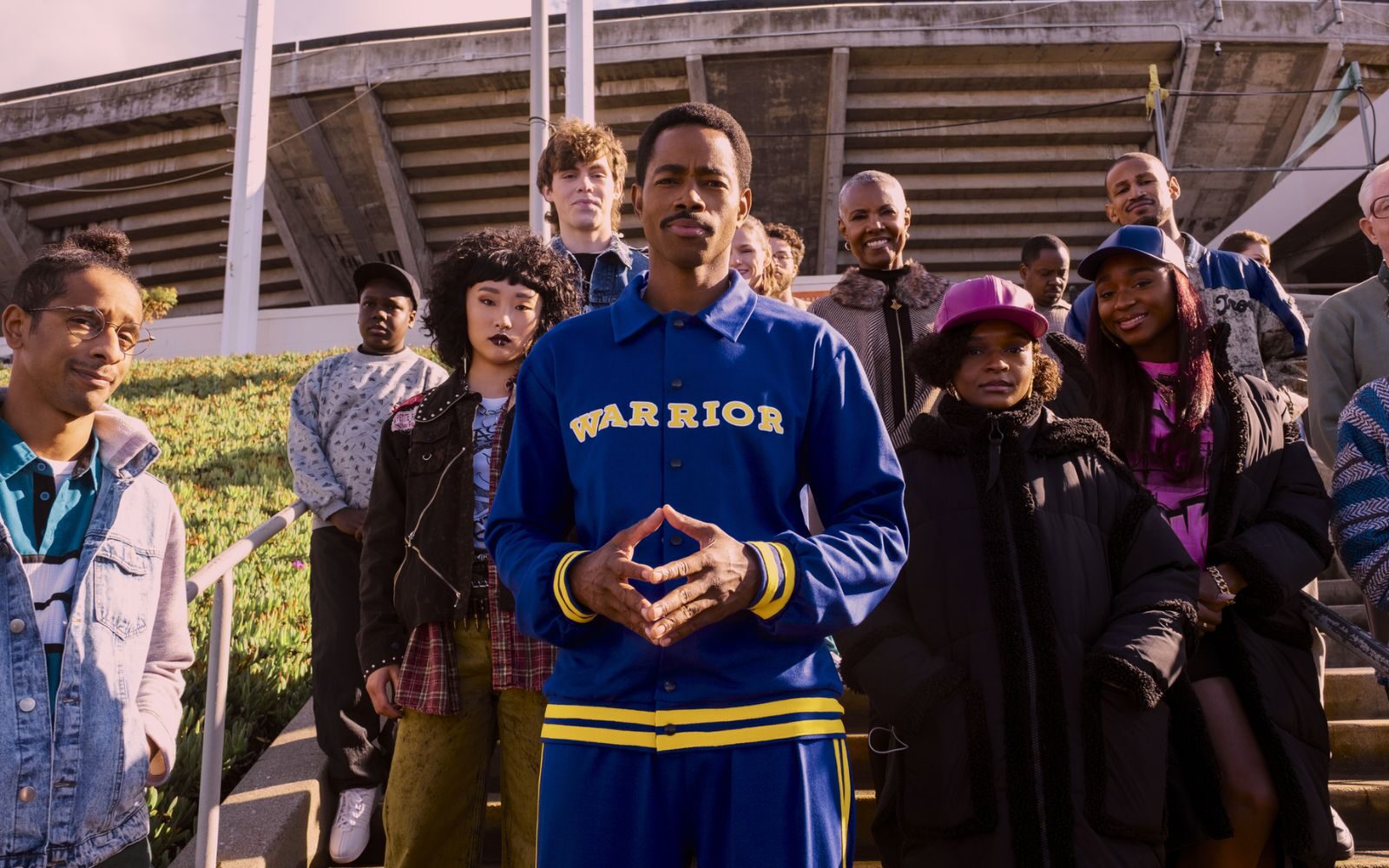
Freaky Tales Is a Blood-Soaked Love Letter to Late-80s Oakland
Director duo Anna Boden and Ryan Fleck’s return to indie filmmaking obliterates the line between homage and pastiche.
Directed by Anna Boden and Ryan Fleck
by Prabhjot Bains
- Published on
After attempting to impart a unique, personal touch to the machinery of large-scale studio fare with 2019’s Captain Marvel, indie darlings Anna Boden and Ryan Fleck return to their filmmaking roots with an offbeat ode to late ’80s Oakland in Freaky Tales. The four-part anthology of interconnected stories quickly obliterates the line between homage and pastiche, repurposing the B-movie, grindhouse aesthetics of John Carpenter and Quentin Tarantino (with a dash of Repo Man’s mysterious neon green glow) to craft a gory, garish hodgepodge that delightfully sticks it to white supremacy.
Yet, for as spirited as Freaky Tales is, it initially sputters and stammers, taking the first 40 of its 108 minutes to click into place. When Boden and Fleck’s film hits its stride, it’s a raucous, oddly endearing ride that not only offers pulpy wish fulfilment in the form of sliced up skinheads and body explosions (putting even Scanners or The Fury to shame), but some fruitfully formed digressions.
Though, in emblazoning its cinematic touchstones on its sleeve, much of Freaky Tales feels trapped within their shadows, struggling to spin its obvious influences into an act of transcendent schlock and sleaze. At once, the film unfolds as a carbon copy of its predecessors and a bizarrely unique rendition. While there’s no mistaking Boden and Fleck’s genre tribute for fine filmic dining, it survives as suitable fast food, a cinematic cheeseburger that, while tough on the gut at times, hits the spot in satisfying fashion.
Armed with charmingly obvious greenscreens and copious amounts of syrupy blood, Freaky Tales quickly hints that something strange and mysterious is brewing on the streets of 1987 Oakland. The delightfully bizarre backdrop takes a page from the pulpy panels of a comic book, not only diving into the various subcultures of the Californian city but numerous genres—coming-of-age romance, gritty crime fable, hip-hop musical, and martial arts extravaganza.
In the first segment, punk teenagers Tina (Ji-young Yoo) and Lucid (Jack Champion), navigate a budding love story while they defend their inclusive club from hatemongering skinheads. In the second, BFFs Entice (Normani) and Barbie (Dominique Thorne) get an unlikely shot at stardom after landing a rap battle with Bay Area icon Too Short (who also serves as the film’s narrator). In Tarantinoesque fashion, the previous stories non-chronologically ooze into the grittier and more violent tales that follow, centering on reformed enforcer-for-hire Clint (Pedro Pascal) and NBA all-star Sleepy Floyd (Jay Ellis), who goes on a rampage after setting a points record for the Golden State Warriors.
While Freaky Tales is held back by its weakest chapters, it maintains a zest and flair for long, sharply staged tangents. In its most memorable sequence—which feels resourcefully plucked from the 90s indie film scene—a video store exchange bursts to life with a vibrant cameo from a cherished film icon (Hint: often dubbed America’s dad), briming with a rousing, transportive energy that seamlessly mythologizes a Bay Area city which often plays second fiddle to its neighbours.
In a cast that features a riveting, grizzled turn from Pedro Pascal, Ben Mendelsohn steals the spotlight as a deliciously despicable, corrupt cop. He leans into the outlandish material with a stone-faced, chauvinistic bravado while maintaining the edge for a hilarious outburst. It’s the kind of full-bodied performance that spares Freaky Tales’ rampant nostalgia from being trite and saccharine. While Boden and Fleck’s tribute to a bygone Oakland isn’t as revelatory as its influences, it is earnest and heartfelt enough to make us wish we’d been there to experience it.
Freaky Tales is in theatres on April 4


